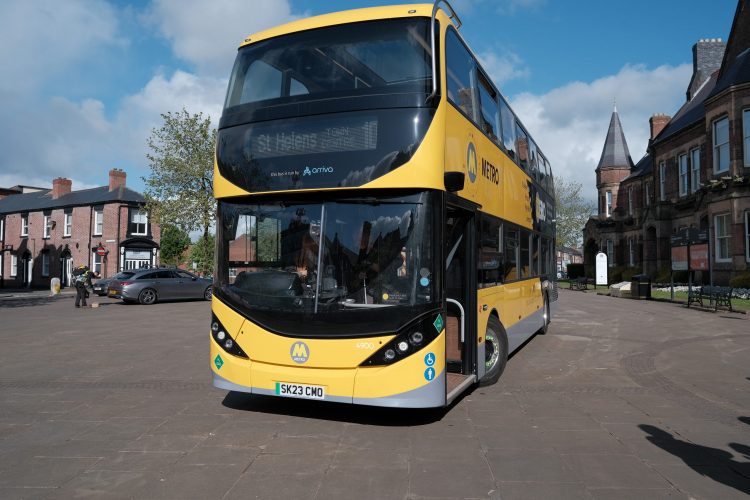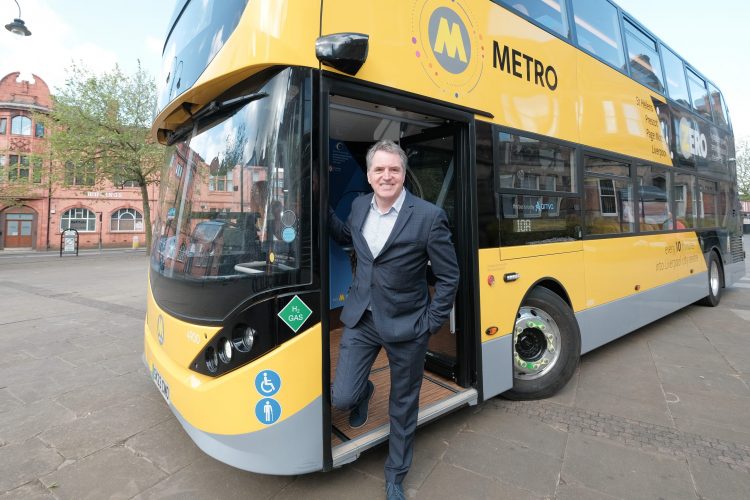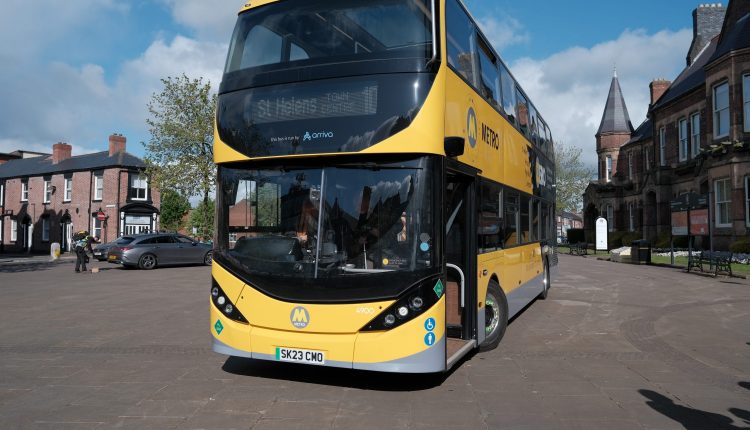Liverpool city region’s £12.5m hydrogen-powered buses are back on the road with a ‘limited service’ weeks after a hydrogen shortage took them out of service. Tony McDonough reports

Liverpool’s city region’s hydrogen buses have gone back into service in the last few days after being taken off the road due to a global shortage of hydrogen.
As part of a major policy initiative by Metro Mayor Steve Rotheram the buses were purchased by Liverpool City Region Combined Authority for £12.5m. They came into service on the 10A route between St Helens and Liverpool city centre in May.
However, in late August the 20-strong fleet was taken out of service due to the hydrogen shortage leaving the Combined Authority searching for a new supplier.
Now LBN has learned it has secured a new supplier and the buses have resumed a “limited number of passenger services”.
A spokesperson added: “We expect this interim supply to increase over the coming weeks so that driver training can continue, and more hydrogen buses can be phased in on the 10/10A route.”
Operated by Arriva and Stagecoach on the 10A route, the vehicles, made by Alexander Dennis, are filled up at a depot in St Helens.
Traditionally buses are powered by diesel fuel, a major source of air pollution in towns and cities. These hydrogen buses emit only water vapour and so are better for the air that we breathe.
However, they cannot yet claim to be net zero as the hydrogen used to fuel them is produced using fossil fuels. The aim is to eventually use so-called green hydrogen, produced using renewable energy, when it becomes more widely available.
In August the Combined Authority said it was looking to secure a “future pathway to 100% sustainable green hydrogen”.
It added: “The rollout of our publicly-owned hydrogen buses will service the busy 10A route, immediately improving air quality along one of the most congested bus routes in the city region.
“These zero emission vehicles are among the most sophisticated and accessible anywhere in the country.
“Along with the region’s new publicly owned trains, are a statement of intent for Mayor Rotheram’s wider vision to build a London-style integrated public transport network that’s faster, cheaper, cleaner and better connected.”

In the past week or so the Combined Authority has taken another step forward in its plan to transform the bus network in the city region with the introduction of a franchising system. This would reverse the privatisation of the network introduced in 1986.
Under a franchised system, decisions about routes, timetables, service frequencies and fares would be taken out of the hands of the private bus operators and be put under the control of the Combined Authority.
READ MORE: Jet2 announces extra routes from Liverpool
Now more than 6,000 people have taken part in public consultation with almost 70% in favour of the franchising plan.
If approved, there would be a three year transition period to allow network improvement measures such as the reintroduction of bus lanes in Liverpool. In July LBN reported that the reforms could cost up to £340m to implement.

